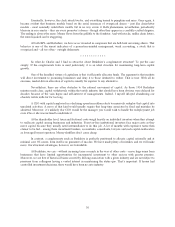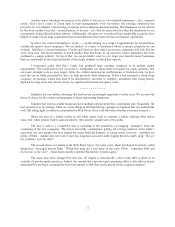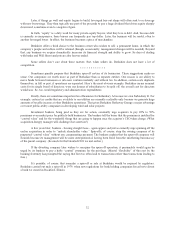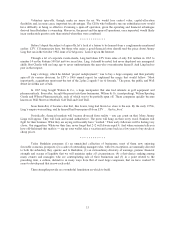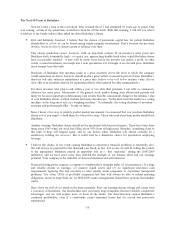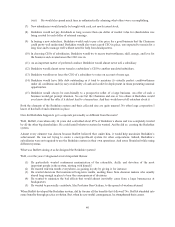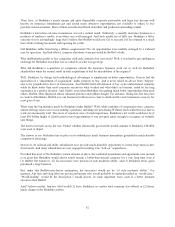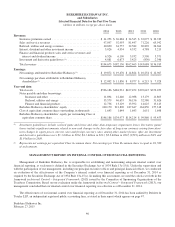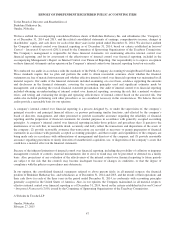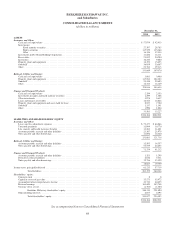Berkshire Hathaway 2014 Annual Report Download - page 42
Download and view the complete annual report
Please find page 42 of the 2014 Berkshire Hathaway annual report below. You can navigate through the pages in the report by either clicking on the pages listed below, or by using the keyword search tool below to find specific information within the annual report.(viii) He would also spend much time in enthusiastically admiring what others were accomplishing.
(7) New subsidiaries would usually be bought with cash, not newly issued stock.
(8) Berkshire would not pay dividends so long as more than one dollar of market value for shareholders was
being created by each dollar of retained earnings.
(9) In buying a new subsidiary, Berkshire would seek to pay a fair price for a good business that the Chairman
could pretty well understand. Berkshire would also want a good CEO in place, one expected to remain for a
long time and to manage well without need for help from headquarters.
(10) In choosing CEOs of subsidiaries, Berkshire would try to secure trustworthiness, skill, energy, and love for
the business and circumstances the CEO was in.
(11) As an important matter of preferred conduct, Berkshire would almost never sell a subsidiary.
(12) Berkshire would almost never transfer a subsidiary’s CEO to another unrelated subsidiary.
(13) Berkshire would never force the CEO of a subsidiary to retire on account of mere age.
(14) Berkshire would have little debt outstanding as it tried to maintain (i) virtually perfect creditworthiness
under all conditions and (ii) easy availability of cash and credit for deployment in times presenting unusual
opportunities.
(15) Berkshire would always be user-friendly to a prospective seller of a large business. An offer of such a
business would get prompt attention. No one but the Chairman and one or two others at Berkshire would
ever know about the offer if it did not lead to a transaction. And they would never tell outsiders about it.
Both the elements of the Berkshire system and their collected size are quite unusual. No other large corporation I
know of has half of such elements in place.
How did Berkshire happen to get a corporate personality so different from the norm?
Well, Buffett, even when only 34 years old, controlled about 45% of Berkshire’s shares and was completely trusted
by all the other big shareholders. He could install whatever system he wanted. And he did so, creating the Berkshire
system.
Almost every element was chosen because Buffett believed that, under him, it would help maximize Berkshire’s
achievement. He was not trying to create a one-type-fits-all system for other corporations. Indeed, Berkshire’s
subsidiaries were not required to use the Berkshire system in their own operations. And some flourished while using
different systems.
What was Buffett aiming at as he designed the Berkshire system?
Well, over the years I diagnosed several important themes:
(1) He particularly wanted continuous maximization of the rationality, skills, and devotion of the most
important people in the system, starting with himself.
(2) He wanted win/win results everywhere--in gaining loyalty by giving it, for instance.
(3) He wanted decisions that maximized long-term results, seeking these from decision makers who usually
stayed long enough in place to bear the consequences of decisions.
(4) He wanted to minimize the bad effects that would almost inevitably come from a large bureaucracy at
headquarters.
(5) He wanted to personally contribute, like Professor Ben Graham, to the spread of wisdom attained.
When Buffett developed the Berkshire system, did he foresee all the benefits that followed? No. Buffett stumbled into
some benefits through practice evolution. But, when he saw useful consequences, he strengthened their causes.
40


